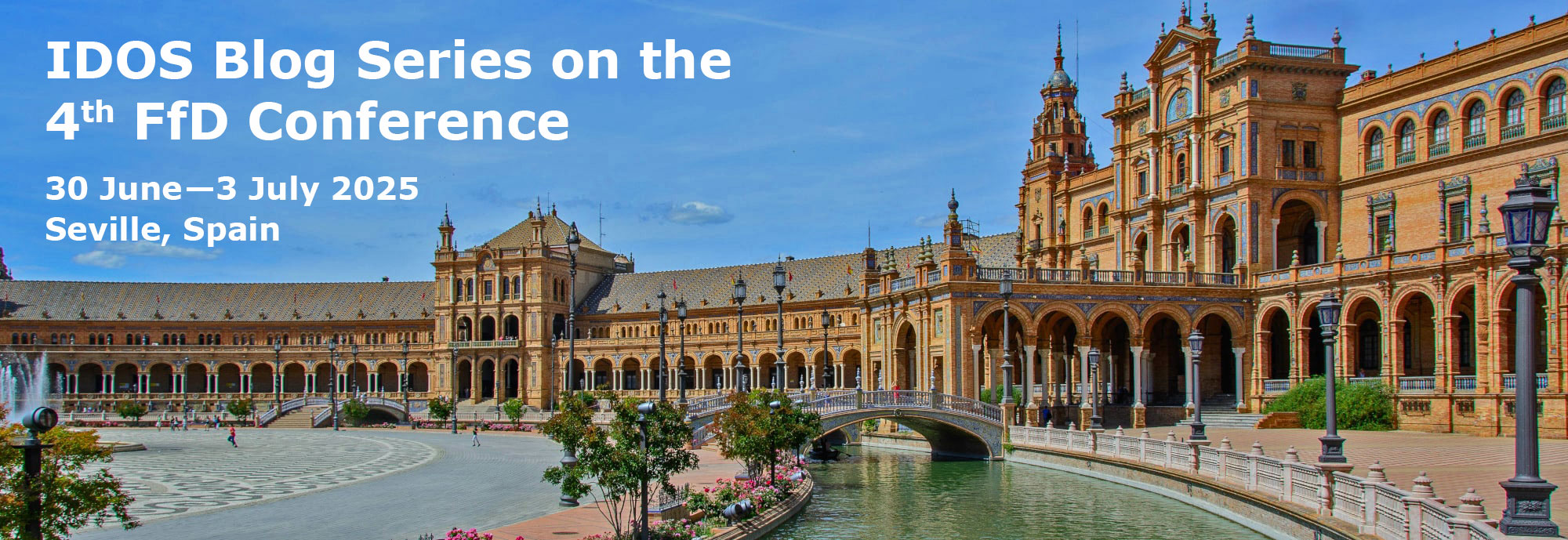The first two sentences delivered by the U.S. representative at the 3rd session of FfD4 Preparatory Committee (3rd PrepCom) last week were already tough ones: “At the outset, I underscore that the United States is currently evaluating its membership and participation in all international organisations and processes. Thus, we are reserving on the whole draft at this time.” With this statement, the elephant in the room – the role of the new U.S. administration in the FfD negotiations – was finally addressed. And what the elephant said was unsettling: It questioned the U.S. participation altogether.
What followed during four days of negotiations on the FfD4 zero draft was no less destructive. The U.S. delegation suggested slashing the draft from 30 pages to 30 paragraphs, insisting the document must be “concise, voluntary, and non-binding”. It demanded that no statements “conflict with U.S. policies as set out in President Trump’s recent executive orders”, rejected language regarding “gender ideology”, and reserved on “references to climate change, biodiversity, and green financing throughout the document”.
The FfD mandate as major point of controversy
The U.S. representative repeatedly argued that much of the draft’s language exceeded the FfD mandate. For instance, she emphasized that the FfD outcome document should “refrain from calling on MDBs or their governing bodies to undertake specific actions” and stressed that the U.S. will not accept an outcome document that proposes a role for the UN in the global debt architecture. In a similar vein, the U.S. opposed language in the zero draft on a broad range of other critical topics, including trade policy, investment agreements, credit rating agencies, illicit financial flows, the global financial safety net, financial regulation, and public payment systems.
The stance that the FfD process should focus on a narrow mandate is usually justified by the claim that it should avoid diluting the responsibilities of other institutions or duplicating other processes. While this argument is understandable, it often serves merely as a pretext. Consider, for example, the U.S. opposition against FfD4 calling for specific actions from MDBs. Over the past five years, the U.S. raised no objections when the G20 initiated and continuously pushed for one of the most significant reform processes in the history of MDBs. Yet, as an informal gathering of an arbitrary group of governments, the G20 has no greater mandate to decide on MDB reforms than the FfD process. The true motivation behind the U.S. opposition to FfD4’s call for reforms in such institutions appears to be a preference for key decisions to be made in more exclusive forums where the U.S. holds greater influence.
Another example is the U.S. position that the FfD process cannot give any calls about trade policy, as this should exclusively be discussed at the WTO. However, the U.S. role at the WTO in recent years has also been far from constructive. Under both the former Trump administration and, to some extent, its predecessors, the U.S. has blocked the functioning of the WTO’s Appellate Body, the organization’s highest dispute-resolution panel. This has led to a near paralysis of the WTO’s ability to adjudicate trade disputes, as the Appellate Body, which requires a minimum of three judges to operate, has been left without enough members to function. Moreover, the U.S. has been reluctant to engage in meaningful WTO reforms, despite widespread recognition that the institution requires modernisation to address new challenges such as e-commerce, digital trade, and climate-related trade policies. President Trump, in particular, frequently criticises the WTO for being biased against U.S. interests and threatened to withdraw from the organization altogether. The contradiction in the U.S. position is evident: while it insists that the FfD process should not encroach upon trade matters because of the WTO’s supposed jurisdiction, it simultaneously contributes to the dysfunction of the WTO itself, effectively weakening the very forum it claims should handle these issues.
Under the Biden administration, the U.S. had also generally defended the status quo in the international financial architecture and had opposed FfD4 making calls and recommendations to MDBs, IMF, or WTO. However, the Biden administration had still emphasized the interconnected nature of our futures and the importance of collective action to address global challenges. Consequently, there was a perception that a consensus could be reached. With the new U.S. administration this optimism now appears to be misplaced.
How to react to the destructive stance of the U.S. administration
The Trump administration’s obstructionist approach, as clearly shown in the 3rd PrepCom last week, leaves those who still hope for FfD4 to foster an ambitious agreement on the way forward for development finance with a difficult decision. Should they agree to a substantially weakened outcome document – one that only includes vague, high-level statements on a restricted number of policy areas – in the hopes of keeping the U.S. engaged? Or should they push forward with an ambitious agenda, even at the risk of the U.S. withdrawing from the process entirely?
If the goal is to prevent FfD4 at least from regressing behind previous agreements, the latter option may be the only viable path. After all, the FfD4 conference can, in principle, make decisions with a two-thirds majority of states. While U.S. disengagement would be a significant setback, allowing its obstructionist stance to dictate the terms might ultimately be more damaging to the integrity of the process.
This blog post is part of a series on the 4th FfD conference by the German Institute of Development and Sustainability (IDOS). Please also read the previous contributions to this series:
- Rationalising Tax Expenditures – a Core Element of Financing for Development, by Christian von Haldenwang and Agustín Redonda
- Forging Consensus: Navigating Trade Controversies in the FfD4 Zero Draft, by Clara Brandi
- Cumbersome but Essential – The United Nations Financing for Development Process Ahead of its 4th Conference, by Kathrin Berensmann, Clara Brandi, Sören Hilbrich, and Yabibal Walle
All blogs express the views of the author(s).


Schreibe einen Kommentar